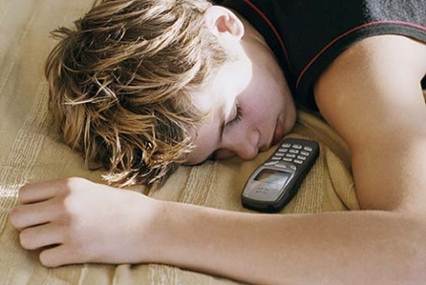 T1 diabetes children with disturbed sleep have problems not only in blood sugar control, but also in quality of life. Diabetic children with more nightly apnea events had significantly higher glucose levels and spent more time in hyperglycemia than young type 1 diabetics without sleep disturbances, Michelle Perfect, PhD, of the University of Arizona in Tucson, and colleagues reported online in ‘Sleep’. T1 diabetes children with disturbed sleep have problems not only in blood sugar control, but also in quality of life. Diabetic children with more nightly apnea events had significantly higher glucose levels and spent more time in hyperglycemia than young type 1 diabetics without sleep disturbances, Michelle Perfect, PhD, of the University of Arizona in Tucson, and colleagues reported online in ‘Sleep’.
 "Despite adhering to recommendations for good diabetes health, many youth with type 1 diabetes have difficulty maintaining control of their blood sugars," Perfect said. "We found that it could be due to abnormalities in sleep, such as daytime sleepiness, lighter sleep, and sleep apnea. All of these make it more difficult to have good blood sugar control". "Despite adhering to recommendations for good diabetes health, many youth with type 1 diabetes have difficulty maintaining control of their blood sugars," Perfect said. "We found that it could be due to abnormalities in sleep, such as daytime sleepiness, lighter sleep, and sleep apnea. All of these make it more difficult to have good blood sugar control".
 The researchers assessed 50 type 1 diabetes patients aged 10 to 16 – 40 yrs of whom had polysomnography data -- and in part of the study, compared them with 40 matched controls. The researchers assessed 50 type 1 diabetes patients aged 10 to 16 – 40 yrs of whom had polysomnography data -- and in part of the study, compared them with 40 matched controls.
 They found that kids with an apnea-hypopnea index score of 1.5 events per hour or greater had higher blood glucose levels on continuous glucose monitoring (CGM) and spent greater percentage of time at night in hyperglycemia. With regard to sleep architecture, when compared with healthy controls, youth with type 1 diabetes spent more time in lighter sleep, and less time in deeper sleep, particularly during the first half of the night. They found that kids with an apnea-hypopnea index score of 1.5 events per hour or greater had higher blood glucose levels on continuous glucose monitoring (CGM) and spent greater percentage of time at night in hyperglycemia. With regard to sleep architecture, when compared with healthy controls, youth with type 1 diabetes spent more time in lighter sleep, and less time in deeper sleep, particularly during the first half of the night.
 Those with diabetes also experienced more central apnea events per hour, although there were no significant differences in total apnea events, the researchers said. Perfect and colleagues found that spending less time in deep sleep, was associated with higher HbA1c levels, and that more time spent in lighter sleep, was associated with higher HbA1c levels, higher glucose levels, and more time in hyperglycemia. Those with diabetes also experienced more central apnea events per hour, although there were no significant differences in total apnea events, the researchers said. Perfect and colleagues found that spending less time in deep sleep, was associated with higher HbA1c levels, and that more time spent in lighter sleep, was associated with higher HbA1c levels, higher glucose levels, and more time in hyperglycemia.
 The researchers also found that self-reported daytime sleepiness was linked with compromised psychosocial functioning. The authors recommend that “Sleep should be routinely assessed as part of diabetes management in youth with T1DM”. The researchers also found that self-reported daytime sleepiness was linked with compromised psychosocial functioning. The authors recommend that “Sleep should be routinely assessed as part of diabetes management in youth with T1DM”.
|

